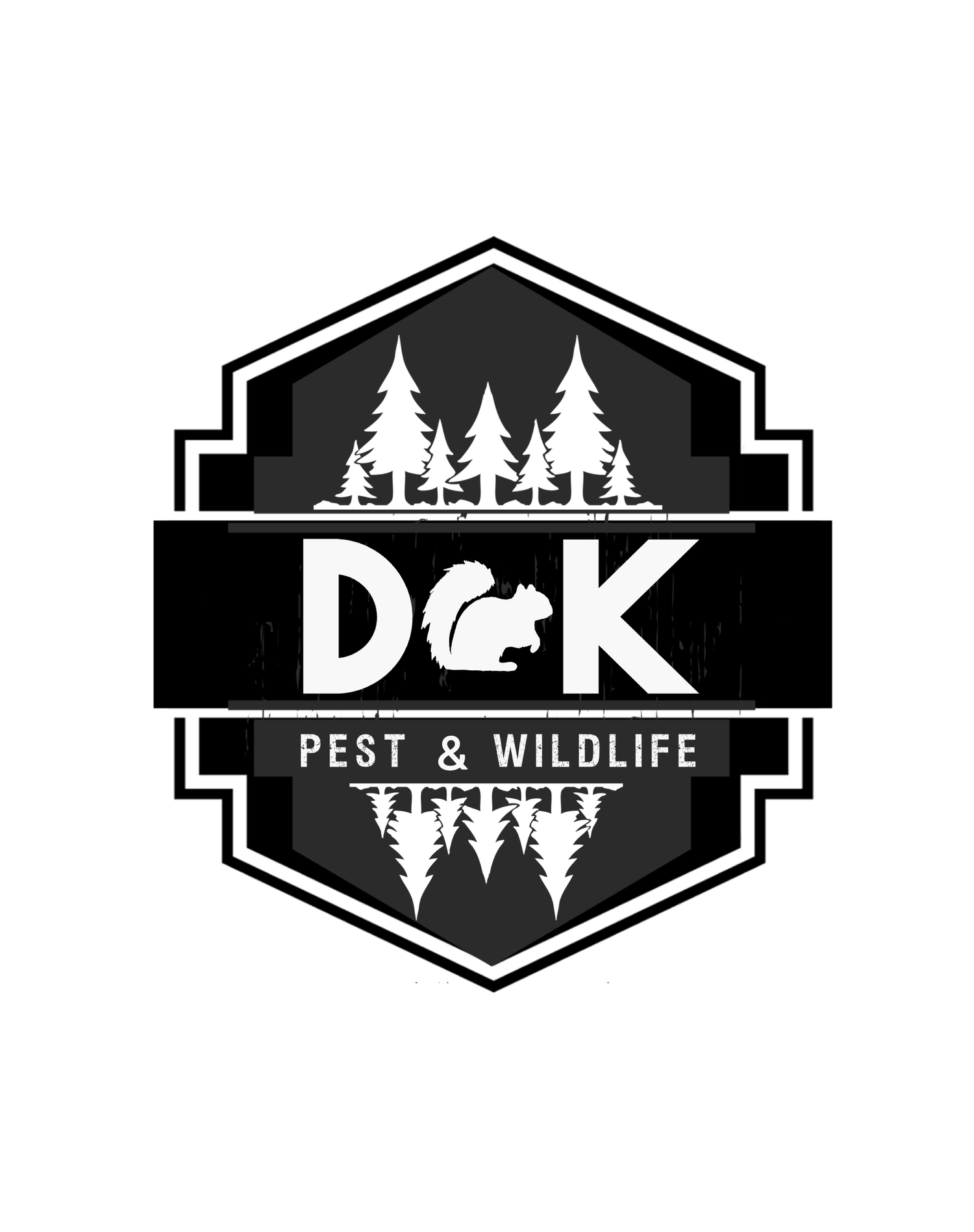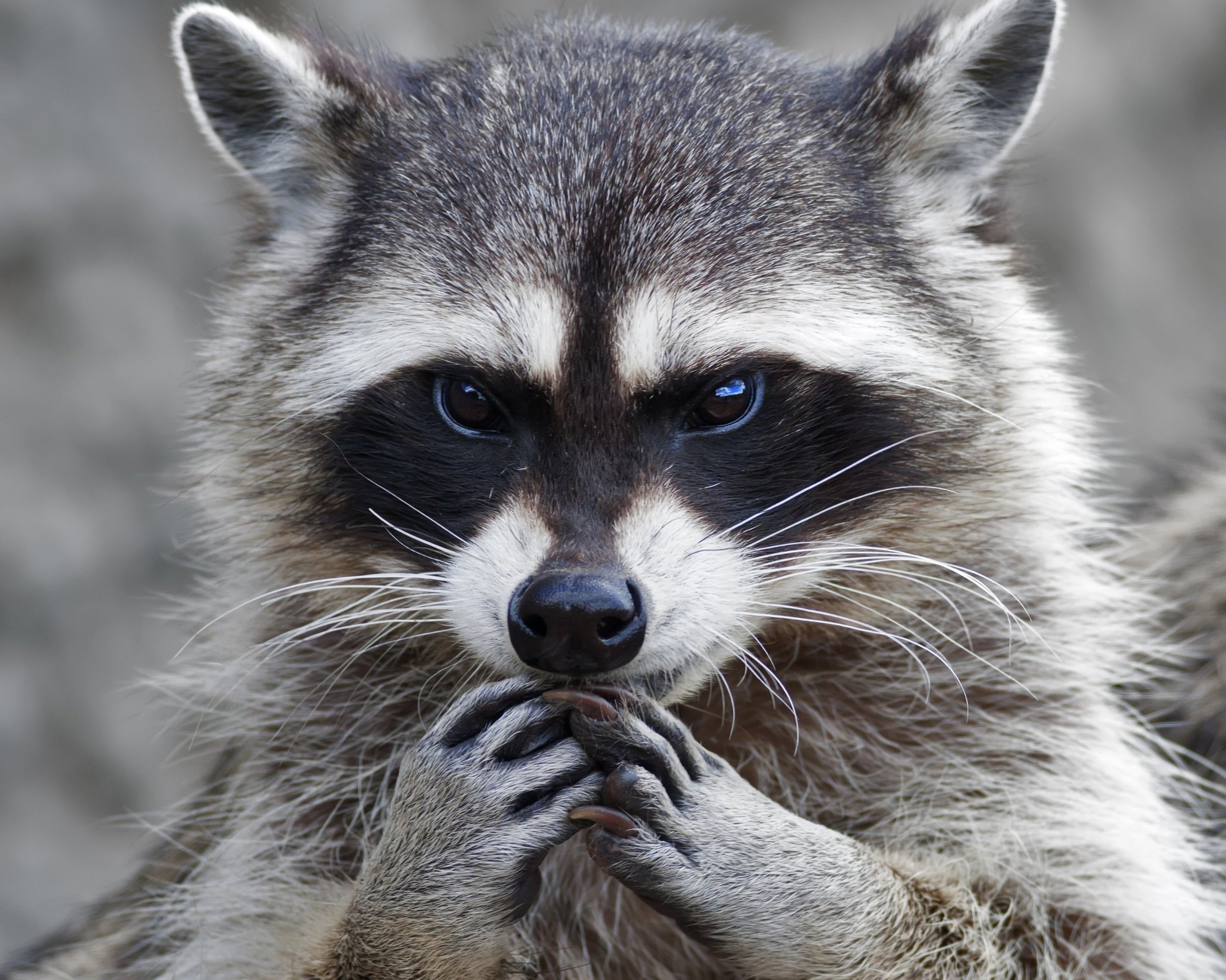Raccoon Identification & Prevention
FREQUENTLY ASKED QUESTIONS ABOUT RACCOONS
ARE RACCOONS DANGEROUS?
Raccoons are quite destructive and can create large messes in our indoor and outdoor spaces. They use their human-like paws and teeth to damage fences, screens, vents, roof soffits, and shingles to gain access to your yard or home.
Inside homes and other structures, they contaminate insulation and drywall with their excrement and urine. Using their teeth and paws, raccoons will cause damage to wires, cables, and ductwork.
As raccoons forage for food in your yard, they will dig through and turn over trash cans and compost bins, eat your pet's food and bird seed, and dig up your yard. If you own chickens, raccoons are a threat to both the adults and their eggs.
In addition to how destructive raccoons are, these wild animals also carry and spread diseases, including rabies, that can cause serious health concerns for people and animals. Raccoons will also introduce the fleas and ticks they have in their fur into our yards and homes.
WHY DO I HAVE A RACCOON PROBLEM?
Intelligent creatures that will take advantage of any situation that helps them survive, raccoons have learned that wherever there are people, they will have access to their own basic needs.
Raccoons are omnivores that e both plants and animals and feed on various foods, including fruits, berries, fish, bird eggs, and nuts. Raccoons can eat most of the same food we do, so these animals regularly forage for food in our outdoor eating areas, gardens, and trash receptacles.
Our yards also offer plenty of places for raccoons to create their dens, like the spaces under sheds or decks, under woodpiles or construction debris, or in tree hollows.
WHERE WILL I FIND RACCOONS?
Raccoons like to create burrows near food and water sources. In rural areas, they live in wooded areas or fields near streams. Rural or suburban properties near their natural habitats are most likely to experience problems with these pests. However, raccoons have also adapted to living in urban areas taking advantage of the many buildings that offer them shelter and reliable food sources like pet food, garbage, and food debris.
If raccoons are spending a lot of time in your yard, you will likely notice the following things:
Waking up each morning to overturned trash cans or compost containers
Torn trash bags
Human-like handprints in the soil in gardens
Holes in the lawn
Bird feeders that are empty each morning.
A common sign that raccoons have found their way into your Aurora home is noticing torn siding, screens, or damaged vents they are using as entryways. Additionally, raccoons are much larger than rodents, and you can easily hear them running around your home's attics or wall voids. Also, the build-up of their excrement and urine produces a strong, foul odor within the homes they are nesting in.
HOW DO I GET RID OF RACCOONS?
Having to share your home with raccoons is an unpleasant experience. If raccoons ever try to become permanent members of your household, you should take fast action to eliminate them and minimize the damage they can cause. Reaching out to a wildlife control expert is the best way to handle a problem with raccoons on your property.
Here at D&K Pest Control provide raccoon removal services you can trust. One of our professionals will come to your home and identify entry points, remove the adult raccoons present, check for kits (baby raccoons), and, if any are present, remove them. Finally, we will repair entry points to help prevent future issues with these wild animals.
Don't hesitate to reach out today to learn more about our pest control and our raccoon removal process; we go where the wild things are!
HOW CAN I PREVENT RACCOONS IN THE FUTURE?
Use the following raccoon prevention and control tips to make your property less attractive to these wild animals.
Installing motion-activated sprinklers can help to scare curious raccoons away from your yard.
Place all trash bags you remove from your home in trash containers that have locking lids.
If possible, don't feed pets outside and remove bird feeders.
Place fencing around the bottom of sheds, chicken coops, and decks to stop raccoons from going under them.
If you own chickens, ensure their enclosures are secure and gather their eggs daily.
Keep raccoons out of your home by placing caps on chimneys, repairing damage to screens, and repairing roof damage.
If raccoons do ever find their way to your property, the best solution is to quickly reach out to D&K Pest Control. For pest control in Aurora, call us today.
WHAT ARE RACCOONS?
Raccoons are a type of wild animal most well-known for the black "mask" of fur that covers their eyes. Their distinct mask of fur is why people often refer to these animals as "masked bandits."
Raccoons are about the size of a large house cat and have hunched bodies. Covering their body is black and gray peppered fur. Their fluffy tail has black and gray fur that creates a "ringed" pattern. An interesting fact about raccoons is that they have hand-like paws that offer them good dexterity and the ability to manipulate objects.


